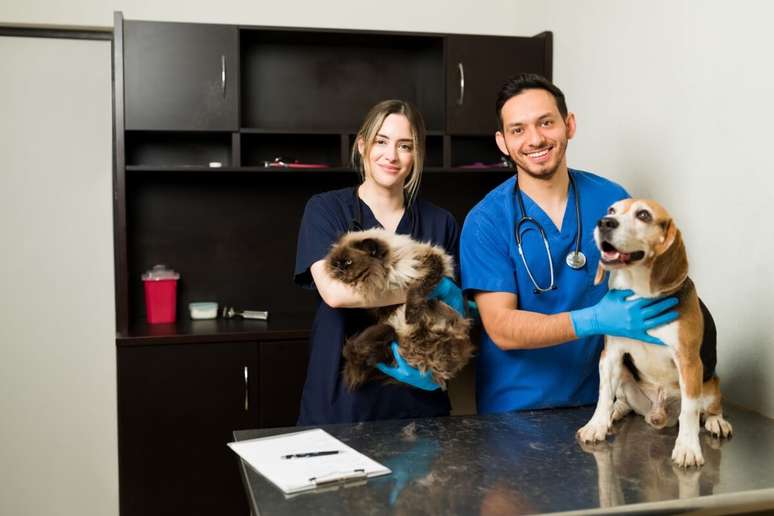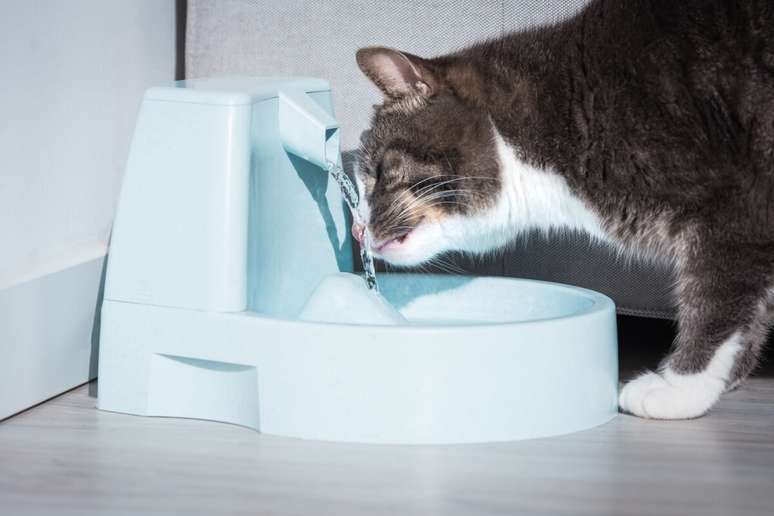The vet explains how some factors can damage the functioning of the kidneys of dogs and cats
March is the month dedicated to raising awareness among pet owners about the treatment and prevention of kidney disease. The Chronic Patient Care Program, developed by Petlove, shows that, of the 267 animals participating in the program, 59 have been diagnosed with chronic kidney failure and are undergoing veterinary care, 76% of which are felines.
Joana Portin, Petlove veterinarian and program manager, explains that, in general, kidney disease can occur acutely and chronically. The former can occur in cases of poisoning, obstructive kidney damage (for example, urinary obstruction) and in cases of serious infections. Chronic kidney disease, on the other hand, occurs due to senility, that is, when the kidney of an adult or elderly animal loses its functional capacity.
“Pets with chronic kidney disease they become dehydrated rapidly, as the kidney is unable to do its job of filtering and concentrating urine. Cats are more susceptible to disease, their drinking habits and the way they feed themselves they were altered with the domestication of the species”, explains the professional.
According to Joana Portin, the causes of this type of disease are different, such as genetics, infections, the presence of parasites, autoimmune diseases, poisoning or inflammation.
Symptoms of kidney disease
Early symptoms of chronic kidney disease may include increased urine output, a change in the color of the urine (lighter), and an increase in the pet’s thirst. As the problem progresses, vomiting, decreased or lack of appetite, lethargy, and apathy may appear. In extremely severe cases, the animal may present an ulcer on the oral mucosa and uremic breath (strong smell of urea in the mouth).
“In acute kidney disease, the symptoms are more rapid and intense and can present with apathy, severe dehydration, vomiting, excessive thirst and abundant or even absent urine production, depending on the severity,” reveals the professional.

Breeds prone to developing kidney disease
The veterinarian points out that there are some breeds that are more predisposed to developing kidney problems, generally from adulthood to the elderly. Among the canids we remember the beagle, the cocker, the poodle and the Doberman. Felines, in turn, include rag dolls, Maine CoonsSiamese and, above all, Persian.
Joana Portin says that kidney disease in dogs, while less common, tends to be more serious. “Dogs are less tolerant of kidney damage than cats, so a cat, depending on when it was diagnosed, can spend years living with kidney disease and receiving appropriate care. A dog, once diagnosed, tends to have a more rapid evolution of the disease”, he explains.
Important prevention and treatments
While it is not possible to reverse chronic kidney disease, you can take some precautions to preserve the longevity and well-being of your furry friend. One of the most effective is the combination of monitoring with a trusted veterinarian and regular routine examinations.
“It often is controls that we have identified that there is already the onset of renal damage and we have been able to act on stability, slowing down the progression of the disease. Some tests can identify the disease early, so it is extremely important veterinary consultations they are even more frequent when pets become adults and seniors, that is, from the age of six,” says veterinarian Petlove.
Furthermore, it is necessary to encourage the daily consumption of wet foods, as well as the intake and supply of water portion of good quality, in addition to species welfare practices petfocused on stress reduction and behavioral changes.
By Nathalia Bezerra
Source: Terra
Ben Stock is a lifestyle journalist and author at Gossipify. He writes about topics such as health, wellness, travel, food and home decor. He provides practical advice and inspiration to improve well-being, keeps readers up to date with latest lifestyle news and trends, known for his engaging writing style, in-depth analysis and unique perspectives.









